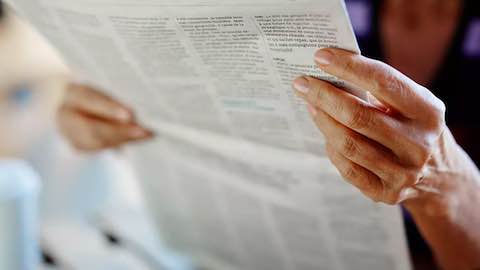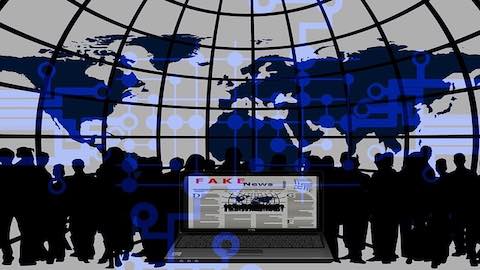- MENU
- HOME
- SEARCH
- WORLD
- MAIN
- AFRICA
- ASIA
- BALKANS
- EUROPE
- LATIN AMERICA
- MIDDLE EAST
- United Kingdom
- United States
- Argentina
- Australia
- Austria
- Benelux
- Brazil
- Canada
- China
- France
- Germany
- Greece
- Hungary
- India
- Indonesia
- Ireland
- Israel
- Italy
- Japan
- Korea
- Mexico
- New Zealand
- Pakistan
- Philippines
- Poland
- Russia
- South Africa
- Spain
- Taiwan
- Turkey
- USA
- BUSINESS
- WEALTH
- STOCKS
- TECH
- HEALTH
- LIFESTYLE
- ENTERTAINMENT
- SPORTS
- RSS
- News Media & Journalism
Agriculture | Airline | Auto | Beverage | Biotech | Book | Broadcast | Cable | Chemical | Clothing | Construction | Defense | Durable | Engineering | Electronics | Firearms | Food | Gaming | Healthcare | Hospitality | Leisure | Logistics | Metals | Mining | Movie | Music | Newspaper | Nondurable | Oil & Gas | Packaging | Pharmaceutic | Plastics | Real Estate | Retail | Shipping | Sports | Steelmaking | Textiles | Tobacco | Transportation | Travel | Utilities
3M (MMM) | AT&T (T) | AIG (AIG) | Alcoa (AA) | Altria (MO) | American Express (AXP) | Apple (AAPL) | Bank of America (BAC) | Boeing (BA) | Caterpillar (CAT) | Chevron (CVX) | Cisco (CSCO) | Citigroup (C) | Coca Cola (KO) | Dell (DELL) | DuPont (DD) | Eastman Kodak (EK) | ExxonMobil (XOM) | FedEx (FDX) | General Electric (GE) | General Motors (GM) | Google (GOOG) | Hewlett-Packard (HPQ) | Home Depot (HD) | Honeywell (HON) | IBM (IBM) | Intel (INTC) | Int'l Paper (IP) | JP Morgan Chase (JPM) | J & J (JNJ) | McDonalds (MCD) | Merck (MRK) | Microsoft (MSFT) | P & G (PG) | United Tech (UTX) | Wal-Mart (WMT) | Walt Disney (DIS)
-
Cuba's first major independent newspaper in more than five decades was quickly blocked within Cuba, but the big question is for how long the country's regime will be able to maintain its monopoly on the news media
-
A new report on press freedoms worldwide contains a chilling figure: Only 2 percent of Latin Americans live in countries with a free press. But I wonder whether the report paints an accurate picture of what's going on in the region
-
Unlike the medical and legal professions, which require their practitioners to have a degree and certification, anybody with or without a sane thought in his or her head can be a 'journalist.' It raises a legitimate question of who is one today and indeed what is journalism
-
In response to the acknowledged abuses of his own Justice Department, President Obama has urged legislation for a 'journalist shield law.' And in typical Washington fashion, the proposed act would do nothing to prevent the abuses that supposedly make the law so necessary
-
The broad sweep of our government's counterterrorism policy on targeted killings by unmanned drones, coupled with the Justice Department's new aggressiveness against media leaks, makes me wonder whether we journalists should watch our step
-
President Obama's recent scandal-quakes don't appear to fall anywhere near the level of Richard Nixon's Watergate disaster. But by another Nixonian yardstick, trying to put a muzzle on press freedoms, Team Obama appears to have surged into the lead
-
In today's ever-growing coagulation of fact, fiction and rumor from print, digital and social media, where is the news consumer to look with confidence for the truth?
-
The meteoric rise of new Internet media has created a dangerous rise of send-before-you-think journalism, especially in do-it-yourself media. That puts a greater burden on news consumers to be skeptical about how and what they are being served
-
The fact that the Associated Press news agency decided to ban the term 'illegal immigrant' recently is a big victory for fairness in journalism, but there are other terms used daily in the media that should be revised as well
-
In its latest assessment, Reporters Without Borders ranked the United States No. 47 for media freedom
-
I hate to be one of those old crocks who talks about how things were better in the old days. But you know what? Some things really were better in the old days, including newspapers
-
The question has, of course, been debated forever. Fox says it is, as the name would suggest, a news network. Its critics say it is actually the propaganda arm of the Republican Party and that its highest loyalty is not to accuracy, fairness or other journalistic values but to the furtherance of the party line
-
Legislation designed to protect journalists' confidential sources from being exposed in open court is progressing toward becoming law as the Senate prepares to vote on its version of the shield law. The House passed a version of the bill in March, but objections from the White House and others wary of its national security implications had stalled the Senate's progress until this month
-
If you want to refresh yourself on Barack Obama's talents at organizing and leading and inspiring, you must sit down right now and read the book of the moment -- 'Game Change' by Mark Halperin and John Heilemann. There, laid out for all to follow, is the story of Obama's incredible rise to the top and how he overcame the forces of intolerance and old-fashioned thinking.
-
The twenty-first century has been a traumatic one for journalism. Changes in how people consume news combined with the Great Recession have produced a dark era in journalism. In Losing the News, Alex Jones, addresses how the rise of the Internet and the precipitous decline in advertising have left print journalism in desperate straits.
-
If you turn on your local evening news, you may not notice anything out of the ordinary. But if you change the channel, you'll think you've entered a parallel universe
-
Saudi Arabia's Prince Alwaleed and Sky News lead the list of new satellite TV news contenders in the Middle East
-
We Americans are doing a lot of finger wagging at the scandal unfolding in Britain around Rupert Murdoch's newspapers. Minions of the media mogul there are accused of phone and computer hacking into the lives of seemingly everyone from high government officials to the families of war victims
-
It is with a mixture of outrage and envy that an old-school newspaper veteran like me views Great Britain's newspaper hacking scandal
-
Once upon a time, we looked away. If Babe Ruth was drunk at night but hit a home run during the day, only the home run was reported. That attitude has changed. As behavior got worse, journalism got more pointed. Now comes news that TMZ is sharpening its fangs for a bite into the sports business and this could take the ugliness to a whole new level
-
Apparently, some in the old media have decided that it is, in fact, an either/or game and that the best way to save, if not journalism, at least themselves, is by pointing fingers and calling names. It's a tactic familiar to schoolyard inhabitants everywhere: when all else fails, reach for the nearest insult and throw it around indiscriminately.
-
The Pulitzer Prizes to two news outlets that cooperated with whistleblower Edward Snowden in the disclosure of widespread National Security Agency surveillance of electronic communications at home and abroad has U.S. officialdom in a dither
-
Alain de Botton -- author of books on love, religion and Proust -- explains why the news agenda should be more positive and how the news should aim to improve our lives
-
When I first read that media mogul Rupert Murdoch had closed down his sensationalist British tabloid News of the World, my first reaction was, 'Good riddance!' But I'm no longer rejoicing -- the scandal around the now defunct daily's unscrupulous journalism will encourage government controls of the media worldwide
-
Maybe I'm confused, but if someone tricked me into a lunch by pretending to be someone else, secretly hid a camera, goaded me into comments during a private conversation -- then released only the juiciest parts on the Internet, I'd at least have the right to be ticked off, right?
-
I do not believe in 'citizen journalism.' Yes, I know that's heresy. Yes, I know the old model has changed: the monologue is now a dialogue. Yes, I know ordinary people with cell phone cameras now 'report' newsworthy events and bloggers are indispensable to the national dialogue. However, ...
-
In his latest book, 'Necessary Secrets: National Security, the Media, and the Rule of Law', Schoenfeld traces the tense history between the news media and the government over disclosures of classified information
-
It can be hard to resist sensational news, from the 'if it bleeds, it leads' priorities of local newscasts to the harangues of cable TV pundits. Veteran newsman and journalist Jack Fuller wants to know why. Fuller examines the allure of emotionally charged news and how that affects the kind of information Americans are getting today
-
The function served by daily newspaper journalism is critical to the very maintenance of democracy. It's time we recognized that
-
In a new study that calls into question the credibility of the news business, public belief that the media is inaccurate, biased, and influenced by powerful people has reached historic highs, according to the Pew Research Center
-
Rupert Murdoch's specialty has been the practice of journalism in cynical mockery of our desire for knowledge. Suddenly it's clear to everyone
-
This used to be a noble profession. Now comes the implosion of media baron Rupert Murdoch's empire in the wake of revelations that reporters at his British tabloid paid police for information and hacked into people's voice mails. The 168-year-old paper ceased publication a few days back, but that has hardly been the end of it
-
Here's a warning about the latest virus of so-called social networking that is infecting American journalism. The august Library of Congress has decided to spend untold millions on archiving Twitter, that latest open exercise in getting off your chest in print anything that crosses your mind, in 140 characters or less.
-
Are journalistic standards holding up under the stresses the profession is facing? Two recent events offer an opportunity for reflection.
-
We are worried, here in the newspaper business (motto: 'What, YOU never make misstakes?'). We're hearing that you readers have lost your faith in us. Polls show that, in terms of public trust, the news media now rank lower than used-car salespeople, kidnappers, tapeworms and airline flight announcements. We are still slightly ahead of lawyers.
-
When members of the Obama administration announced that they did not consider Fox a real news network, they were actually bringing attention to what has become the sad reality of real news gathering in this country: It's disappearing faster than contestants on Survivor
-
Of all the industries devastated by the recession, the media has been one of the most notoriously affected. According to the Bureau of Labor Statistics, 65,000 media jobs were cut in 2008 -- nearly 4 percent of the industry's total. Newspapers are perhaps the biggest loser, with more than 9 percent of jobs eliminated in 2008. However, ...
© iHaveNet.com
HOME | WORLD | USA | BUSINESS | WEALTH | STOCKS | TECH | HEALTH | LIFESTYLE | ENTERTAINMENT | SPORTS
News Media, News Publishing & Journalism Industry
Find out what is happening in the News Media, News Publishing & Journalism Industry.
Your Single Source to News Media, News Publishing & Journalism Industry Current Events
Your Single Source to News Media, News Publishing & Journalism Industry Current Events
RSS Feeds | Shopping | Email Alerts | Site Map | Privacy

